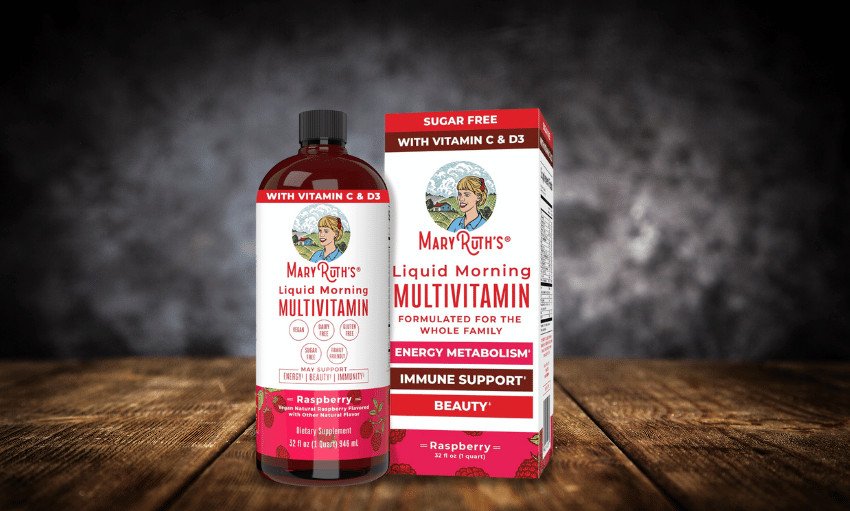In today’s fast-paced world, maintaining a balanced diet can be challenging. Many people turn to multivitamin supplements as a convenient way to ensure they’re getting essential nutrients. But what exactly are these supplements, and are they worth the hype?
Multivitamin supplements are formulations designed to provide a combination of vitamins and minerals that may be missing from your daily diet. They come in various forms—pills, gummies, capsules, and even liquids—and cater to different age groups, genders, and lifestyles. From boosting immunity to supporting energy levels, multivitamins have gained popularity as a go-to solution for overall health.
In this comprehensive guide, we’ll explore everything you need to know about multivitamin supplements , including their benefits, potential risks, and tips for choosing the best product for your needs. Whether you’re a busy professional, a parent, or someone simply looking to improve your health, this article will answer all your questions and more.

What Are Multivitamin Supplements?
At their core, multivitamin supplements are dietary supplements that combine a variety of essential vitamins and minerals into a single dose. These nutrients play critical roles in maintaining your body’s functions, from supporting your immune system to promoting healthy skin, bones, and energy levels.
The primary purpose of multivitamins is to fill nutritional gaps in your diet. For example, if you’re not eating enough fruits and vegetables, a multivitamin can help ensure you’re still getting vital nutrients like Vitamin C, Vitamin D, and magnesium.
Key Ingredients in Multivitamin Supplements
Most multivitamin supplements contain a mix of the following key ingredients:
- Vitamin A : Supports vision, immune function, and skin health.
- Vitamin C : Boosts immunity and acts as an antioxidant.
- Vitamin D : Essential for bone health and calcium absorption.
- B Vitamins (B6, B12, Folate) : Help convert food into energy and support brain function.
- Iron : Critical for red blood cell production and preventing anemia.
- Zinc : Supports immune function and wound healing.
- Magnesium : Plays a role in muscle function, nerve health, and energy production.
These ingredients work together to support your body’s overall health. However, it’s important to note that not all multivitamins are created equal. Some are formulated for specific groups, such as women, men, seniors, or children, while others focus on particular health goals, like prenatal care or energy enhancement.

Who Should Consider Taking Multivitamin Supplements?
While multivitamins can benefit almost anyone, certain groups may find them particularly useful:
- Pregnant Women : Prenatal multivitamins often include folic acid, which is crucial for fetal development.
- Older Adults : As we age, our bodies may absorb fewer nutrients, making supplementation beneficial.
- Vegans and Vegetarians : Plant-based diets may lack Vitamin B12, iron, and omega-3 fatty acids.
- People with Dietary Restrictions : Those with allergies, intolerances, or limited access to fresh foods may benefit from multivitamins.
If you fall into any of these categories—or if you simply want to ensure you’re meeting your daily nutrient needs—a multivitamin supplement could be a valuable addition to your routine.

The Benefits of Multivitamin Supplements
Taking multivitamin supplements can offer a wide range of health benefits, especially if your diet is lacking in certain nutrients. While they’re not a magic pill for perfect health, they can play a supportive role in maintaining overall well-being. Below, we’ll dive into the key advantages of incorporating multivitamins into your daily routine.
Filling Nutritional Gaps
One of the primary reasons people turn to multivitamin supplements is to fill nutritional gaps in their diet. Even with the best intentions, it’s easy to fall short on essential nutrients. For example:
- Vitamin D : Many people, especially those living in northern climates or spending most of their time indoors, don’t get enough sunlight exposure to produce adequate Vitamin D. (Best-selling Vitamin D options)
- Iron : Women, particularly those who are menstruating, are at higher risk of iron deficiency, which can lead to fatigue and anemia. (Best Iron supplement options)
- Magnesium : This mineral, found in foods like nuts and leafy greens, is often under-consumed in modern diets. (Best Magnesium supplements)
By taking a multivitamin supplement , you can help ensure that your body gets the nutrients it needs to function optimally.
Case Study : A 2019 study published in the Journal of Nutrition found that individuals who took multivitamins had higher levels of key nutrients like Vitamin D, magnesium, and zinc compared to those who didn’t.
Boosting Immune Health
Your immune system relies heavily on vitamins and minerals to function properly. Certain nutrients, such as Vitamin C , Zinc , and Vitamin D , are particularly important for immune support.
- Vitamin C : Known for its antioxidant properties, Vitamin C helps protect cells from damage and supports the production of white blood cells, which fight off infections. (Best Vitamin C supplements)
- Zinc : Plays a crucial role in immune cell development and communication. Zinc deficiency has been linked to weakened immune responses. (Best Zinc supplements)
- Vitamin D : Low levels of Vitamin D have been associated with increased susceptibility to infections and autoimmune diseases. (Best Vitamin D supplements)
Taking a multivitamin supplement that includes these nutrients can give your immune system the boost it needs, especially during cold and flu season.
Supporting Energy Levels
If you’ve been feeling sluggish or fatigued, a lack of essential nutrients could be to blame. B vitamins, in particular, play a vital role in converting food into energy.
- B6 : Helps your body metabolize proteins and carbohydrates. (Best Vitamin B6 options)
- B12 : Essential for red blood cell production and nerve function. (Best Vitamin B12 supplements)
- Folate (B9) : Supports DNA synthesis and repair. (Best Vitamin B9 products)
A deficiency in any of these B vitamins can lead to low energy levels and even symptoms of fatigue. By including a multivitamin supplement in your daily routine, you can ensure that your body has the fuel it needs to keep you energized throughout the day.
Promoting Long-Term Health
In addition to addressing immediate nutrient deficiencies, multivitamin supplements may also contribute to long-term health benefits. Some studies suggest that regular use of multivitamins can reduce the risk of chronic diseases, such as heart disease, osteoporosis, and even certain types of cancer.
- Heart Health : Antioxidants like Vitamin E and selenium may help reduce oxidative stress, a key factor in heart disease. (Amazon Best-sellers)
- Bone Health : Calcium and Vitamin D work together to strengthen bones and reduce the risk of fractures, especially in older adults. (Amazon best-sellers)
- Cognitive Function : B vitamins, particularly B6, B12, and folate, have been linked to better cognitive performance and a reduced risk of dementia. (Best supplements for cognitive function)
While more research is needed to fully understand the long-term effects of multivitamins, there’s growing evidence that they can play a supportive role in maintaining overall health.

Potential Risks and Side Effects of Multivitamin Supplements
While multivitamin supplements offer many benefits, it’s important to be aware of potential risks and side effects. Like any supplement, they should be used responsibly and in moderation. Below, we’ll explore some of the potential downsides of taking multivitamins.
Risk of Overdosing on Certain Vitamins
One of the biggest concerns with multivitamin supplements is the risk of overdosing on certain nutrients, particularly fat-soluble vitamins like Vitamin A , Vitamin D , Vitamin E , and Vitamin K . Unlike water-soluble vitamins (e.g., Vitamin C and B vitamins), fat-soluble vitamins are stored in the body’s fat tissues and liver. If taken in excess, they can accumulate to toxic levels.
- Vitamin A Toxicity : High doses of Vitamin A can lead to nausea, dizziness, and even liver damage. Pregnant women should be especially cautious, as excessive Vitamin A intake has been linked to birth defects.
- Vitamin D Overdose : While rare, too much Vitamin D can cause hypercalcemia (high calcium levels), leading to kidney stones and other complications.
To avoid these risks, always follow the recommended dosage on the label and consult with a healthcare provider before starting any new supplement regimen.
Interactions with Medications
Another potential risk of multivitamin supplements is their interaction with medications. For example:
- Blood Thinners : Vitamin K can interfere with the effectiveness of blood-thinning medications like warfarin.
- Antibiotics : Certain minerals, like calcium and iron, can reduce the absorption of antibiotics, making them less effective.
If you’re taking prescription medications, it’s crucial to talk to your doctor or pharmacist before adding a multivitamin to your routine.
Not a Substitute for a Healthy Diet
It’s important to remember that multivitamin supplements are meant to complement—not replace—a healthy diet. Whole foods provide a wide range of nutrients, fiber, and antioxidants that can’t be replicated in a pill. Relying solely on multivitamins without making dietary changes can lead to imbalances and missed opportunities for optimal nutrition.
How to Choose the Right Multivitamin Supplement for You
With so many multivitamin supplements on the market, choosing the right one can feel overwhelming. However, by considering a few key factors, you can find a product that meets your specific needs and supports your health goals. Below, we’ll walk you through the process of selecting the best multivitamin for you.
Understand Your Specific Needs
The first step in choosing a multivitamin supplement is understanding your unique nutritional needs. Different life stages, lifestyles, and health conditions require different nutrients. Here’s a breakdown of who might benefit from specific types of multivitamins:
- Pregnant Women : Look for prenatal multivitamins that contain folic acid, iron, and calcium to support fetal development and maternal health.
- Older Adults : As we age, our bodies absorb fewer nutrients, so seniors may benefit from multivitamins with higher levels of Vitamin D, B12 , and calcium to support bone health and cognitive function.
- Vegans and Vegetarians : Plant-based diets often lack Vitamin B12, iron , and omega-3 fatty acids , so vegans should look for multivitamins specifically formulated for their dietary needs.
- Athletes : Active individuals may need more magnesium, zinc, and B vitamins to support muscle recovery and energy production.
Understanding your specific needs will help you narrow down your options and choose a multivitamin that aligns with your health goals.
Look for Third-Party Testing and Certifications
When it comes to multivitamin supplements, quality matters. Unfortunately, not all supplements are created equal, and some may contain harmful additives or inaccurate dosages. To ensure you’re getting a high-quality product, look for third-party testing and certifications from reputable organizations like:
- USP (U.S. Pharmacopeia) : Ensures the product contains the ingredients listed on the label in the stated amounts.
- NSF International : Verifies that the product is free from harmful contaminants and meets safety standards.
- ConsumerLab : Tests products for purity, potency, and label accuracy.
These certifications provide an extra layer of assurance that the multivitamin supplement you’re purchasing is safe and effective.
Avoid Unnecessary Additives
Many multivitamin supplements on the market contain unnecessary additives like artificial colors, preservatives, and excessive sugar. These ingredients offer no nutritional benefit and may even be harmful to your health. When choosing a multivitamin, opt for products that are free from:
- Artificial Colors : Synthetic dyes like Red 40 and Yellow 5 have been linked to hyperactivity in children and other health concerns.
- Preservatives : Ingredients like sodium benzoate and BHA/BHT may have negative health effects when consumed in large amounts.
- Excessive Sugar : Some gummy multivitamins contain high levels of added sugar, which can contribute to weight gain and dental issues.
Instead, look for multivitamin supplements that use natural ingredients and are free from unnecessary fillers.
Compare Dosages to Recommended Daily Intakes
Another important factor to consider is whether the dosages in the multivitamin supplement align with your daily nutritional needs. The Recommended Dietary Allowance (RDA) provides guidelines for how much of each nutrient you should consume daily based on age, gender, and life stage.
Here’s a quick reference table for some key nutrients:
Nutrient | RDA for Adults | Function |
Vitamin A | 700–900 mcg | Supports vision and immune function |
Vitamin C | 75–90 mg | Boosts immunity and acts as an antioxidant |
Vitamin D | 600–800 IU | Promotes bone health and calcium absorption |
Iron | 8–18 mg | Supports red blood cell production |
Magnesium | 310–420 mg | Supports muscle and nerve function |
Make sure the multivitamin you choose provides dosages that meet or slightly exceed these recommendations, but avoid products that contain excessively high doses of any single nutrient.

Frequently Asked Questions About Multivitamin Supplements
Now that we’ve covered the basics of multivitamin supplements , let’s address some of the most common questions people have about them. Whether you’re new to taking multivitamins or just curious about their effects, these FAQs will provide clarity and guidance.
Can I Take Multivitamin Supplements Every Day?
Yes, most multivitamin supplements are designed to be taken daily. In fact, consistency is key when it comes to reaping the benefits of multivitamins. Taking them every day ensures that your body has a steady supply of essential nutrients.
However, it’s important to follow the recommended dosage on the label. Overdoing it can lead to nutrient imbalances or even toxicity, especially with fat-soluble vitamins like Vitamin A and Vitamin D . If you’re unsure about how much to take, consult with a healthcare provider.
Do Multivitamin Supplements Help with Weight Loss?
While multivitamin supplements aren’t specifically designed for weight loss, they can indirectly support your efforts by improving overall health and energy levels. For example:
- B Vitamins: Help convert food into energy, which can enhance physical performance during workouts. (Best B Vitamins on Amazon)
- Magnesium: Plays a role in muscle function and recovery, making it easier to stay active. (Best Magnesium supplements on Amazon)
That said, multivitamins alone won’t lead to significant weight loss. A balanced diet, regular exercise, and healthy lifestyle habits are still the most effective ways to achieve and maintain a healthy weight.
Are There Any Natural Alternatives to Multivitamin Supplements?
If you prefer to get your nutrients from whole foods, there are plenty of natural alternatives to multivitamin supplements. Incorporating nutrient-dense foods into your diet can help you meet your daily nutritional needs without relying on pills or capsules.
Here are some examples of nutrient-rich foods:
- Leafy Greens (Spinach, Kale) : High in Vitamin K, Vitamin C, and magnesium.
- Citrus Fruits (Oranges, Lemons) : Packed with Vitamin C and antioxidants.
- Nuts and Seeds (Almonds, Sunflower Seeds) : Rich in Vitamin E, magnesium, and healthy fats.
While whole foods are always the best source of nutrients, multivitamin supplements can be a helpful backup if you’re unable to meet your needs through diet alone.
Can Children Take Multivitamin Supplements?
Yes, children can benefit from multivitamin supplements, especially if they’re picky eaters or have dietary restrictions. However, it’s important to choose a product specifically formulated for kids, as their nutritional needs differ from adults.
Children’s multivitamins typically contain lower doses of nutrients and come in fun, kid-friendly forms like gummies or chewable tablets. Always consult with a pediatrician before giving your child any supplement to ensure it’s safe and appropriate for their age and health needs.

Tips for Maximizing the Benefits of Multivitamin Supplements
Taking a multivitamin supplement is just one piece of the puzzle when it comes to improving your overall health. To get the most out of your multivitamins, it’s important to use them correctly and pair them with healthy lifestyle habits. Below, we’ll share some actionable tips to help you maximize the benefits of your multivitamin supplements.
Take Them with Food
One of the simplest ways to improve the absorption of multivitamin supplements is to take them with food. Many vitamins and minerals are fat-soluble, meaning they need dietary fat to be properly absorbed by the body. For example:
- Vitamin A , D , E , and K are all fat-soluble vitamins that require fat for optimal absorption.
- Taking your multivitamin with a meal that contains healthy fats—like avocado, nuts, or olive oil—can enhance its effectiveness.
Additionally, taking multivitamins with food can help reduce the risk of stomach upset or nausea, which some people experience when taking supplements on an empty stomach.
Pro Tip : If you’re taking a multivitamin that contains iron, avoid consuming it with calcium-rich foods (like milk or cheese), as calcium can interfere with iron absorption. Instead, take it with vitamin C-rich foods like oranges or bell peppers to boost iron uptake.
Stick to Recommended Dosages
While it might be tempting to take more than the recommended dose of your multivitamin supplement in hopes of getting extra benefits, this can actually do more harm than good. Overdosing on certain nutrients—especially fat-soluble vitamins like Vitamin A and Vitamin D —can lead to toxicity and serious health issues.
Always follow the dosage instructions on the label, and if you’re unsure about how much to take, consult with a healthcare provider. Remember, multivitamin supplements are meant to complement your diet, not replace it.
Combine with a Balanced Diet
As we’ve mentioned before, multivitamin supplements should never be seen as a substitute for a healthy, balanced diet. Whole foods provide a wide range of nutrients, fiber, and antioxidants that can’t be replicated in a pill.
To truly maximize the benefits of your multivitamin, pair it with a diet rich in fruits, vegetables, whole grains, lean proteins, and healthy fats. This combination will ensure that you’re getting a broad spectrum of nutrients that support your overall health.
For example:
- Fruits and Vegetables : Provide essential vitamins, minerals, and antioxidants.
- Whole Grains : Offer fiber, B vitamins, and magnesium.
- Lean Proteins : Deliver amino acids, iron, and zinc.
- Healthy Fats : Support brain health and the absorption of fat-soluble vitamins.
By combining your multivitamin supplement with a nutrient-dense diet, you’ll create a strong foundation for long-term health.

Conclusion: Are Multivitamin Supplements Right for You?
In conclusion, multivitamin supplements can be a valuable tool for filling nutritional gaps, boosting immunity, supporting energy levels, and promoting long-term health. However, they’re not a one-size-fits-all solution, and their effectiveness depends on how you use them.
When choosing a multivitamin supplement , it’s important to consider your specific needs, look for third-party certifications, and avoid unnecessary additives. Additionally, always follow the recommended dosages and pair your multivitamin with a balanced diet and healthy lifestyle habits for the best results.
Ultimately, whether or not multivitamin supplements are right for you depends on your individual health goals and dietary habits. If you’re unsure, consult with a healthcare provider or registered dietitian to determine if supplementation is necessary for your unique situation.
Final Thought : “Multivitamins are like insurance for your health—they’re there to cover the gaps when life gets in the way of perfect nutrition.”
Ready to start your journey toward better nutrition? Explore trusted multivitamin supplements today and take the first step toward a healthier, more vibrant you!









